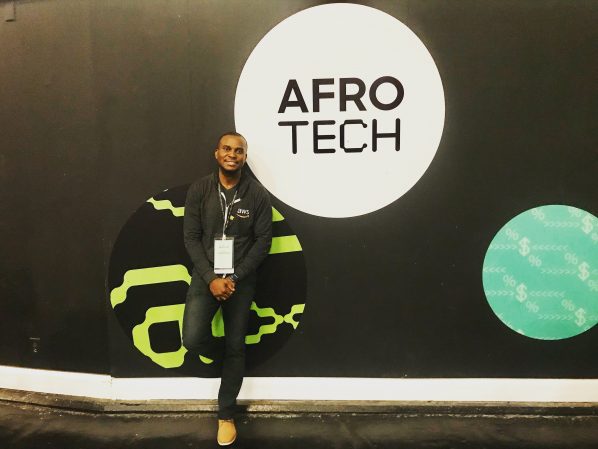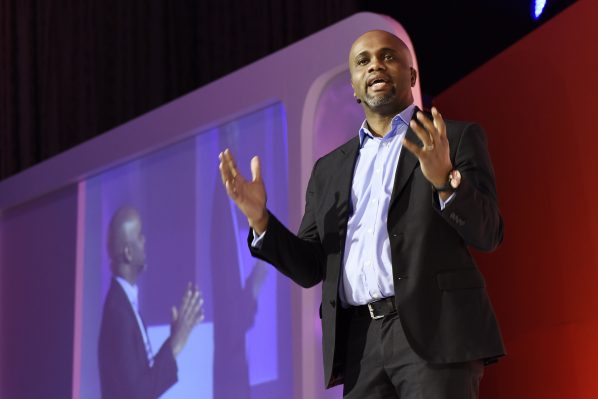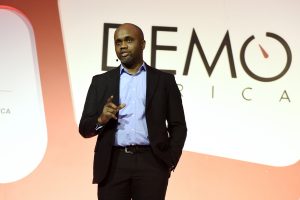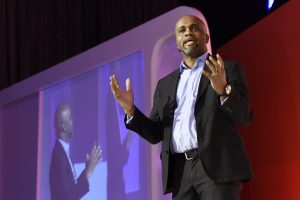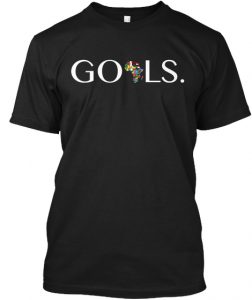 When was the last time you basked in inspiration? For me, it was last week at the AfroTech conference in San Francisco, CA organized by the talented folks at Blavity. Being in a room filled with black executives, techies, creatives, movers, shakers, leaders, and learners felt right. I couldn’t have envisioned a better return on my time. I attended a few sessions in between networking and recruiting for Amazon. Below are 16 lessons I captured:
When was the last time you basked in inspiration? For me, it was last week at the AfroTech conference in San Francisco, CA organized by the talented folks at Blavity. Being in a room filled with black executives, techies, creatives, movers, shakers, leaders, and learners felt right. I couldn’t have envisioned a better return on my time. I attended a few sessions in between networking and recruiting for Amazon. Below are 16 lessons I captured:
1. Daymond John, star of the hit TV Show – Shark Tank, delivered the closing keynote. He shared his 5 Shark Points inspired by his journey in building FUBU and his other successful ventures. Below are the summarized versions of the five points:.
- Set a goal. Goal setting is a tried and tested method of achieving great results. Goals give you direction and the ability to say no to things that don’t align with your goals. When you have clear goals, you can also come back to them when things get fuzzy or you take a wrong exit.
- Do your homework. Innovation can be finding new ways to deliver something so it’s better, faster, or lighter that what exists in the market today.
- Love what you do. When you love what you do, you make sacrifices. You also tend to take a long-term approach.
- Remember you are the brand. Can you summarize your personal brand value proposition in 2-5 sentences?
- Keep swimming, and remember to take care of your health. Get your health regular checkup because health is wealth. It’s hard to run the world from a sick bed.
2. In Everette Taylor’s talk, he encouraged the audience to resist impostor syndrome. He challenged everyone to believe in themselves, and just start and iterate as they grow.
3. According to Everette, one of the biggest mistakes startups make is forgetting to build a great product that solve specific customer problems. If you’re pushing a crappy product, no matter how good of a salesperson you are, you will not be successful in the long run.
4. Surround yourself with the right people because you’re only as strong as the people around you.
5. Do not underestimate the expertise you’re building in your current role. Find ways to turn your expertise into consulting engagements and start building clients on the side.
6. You know what’s as cool as entrepreneurship? Intrapreneurship. According to Wikipedia, Intrapreneurship is the act of behaving like an entrepreneur while working within a large organization. Rovina and Kim from Amazon captured this in their talk of how they built Amazon’s Textures and Hues by obsessing about the customer and applying Amazon’s leadership principles along the way. If you’re looking to embody the intrapreneurial spirit, they suggest you consider these thought starters to help you come up with ideas:
-
- What is a customer experience that you repeat often?
- Where are the pain points in the process?
- Try to list ideas to eliminate these challenge
- One of those ideas could turn into a thriving business
7. The founder of CodePath.org, Michael Ellison, implored the audience to work with people who are so good they intimidate you. And if an experience intimidates you, that’s a good thing.
8. Persistence is key to enhancing your ability to have more luck..
9. Paris Benson, founder of Wizely Financial, stressed the importance of having a board of directors. As a founder, the board is meant to hold you accountable not to be your friend. When selecting your board, strive to get diversity in thought which should include a mix of technical, operational, and financial experience.
10. It’s good idea to have a board member who is not an investor so they can provide an un-biased view.
11. Entrepreneurs should not trade equity for a short-term gain. Long term thinking is key to building lasting value.
12. It was encouraging to see the number of companies that attended AfroTech with the goal of recruiting. According to Sacha Thompson, Inclusion Marketing Lead at AWS, companies should go where diverse talents are. If you don’t have the pipeline, build the pipeline.
13. Many of the speakers had a common theme of defining what success means to you and not what the world says. Success shouldn’t come at the expense of your health or personal relationships.
14. Learn how to delegate so you don’t feel burnt out.
15. If you ever find yourself being the only one that looks like you in a professional setting, it’s your responsibility to do something about it. For example, you could find someone to mentor or refer someone to your company.
16. Hip hop is good for business. According to one of the attendees I spoke to, it was refreshing to hear a Drake song next to a Microsoft recruiting booth, and it wasn’t weird to dance up to the booth with your resume.
See you next year at AfroTech 2019 in Oakland, CA.

